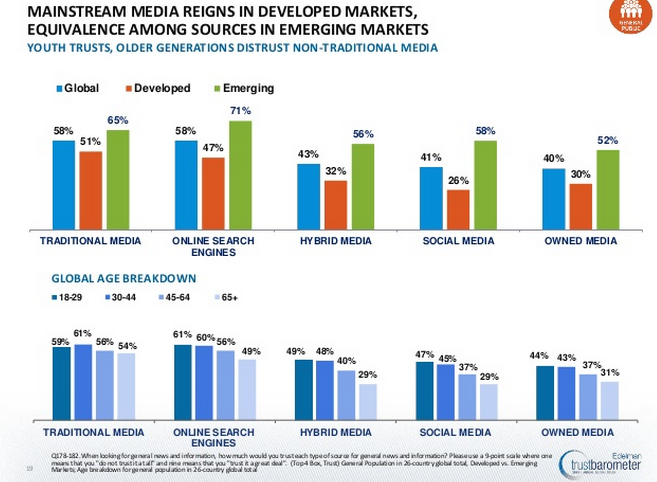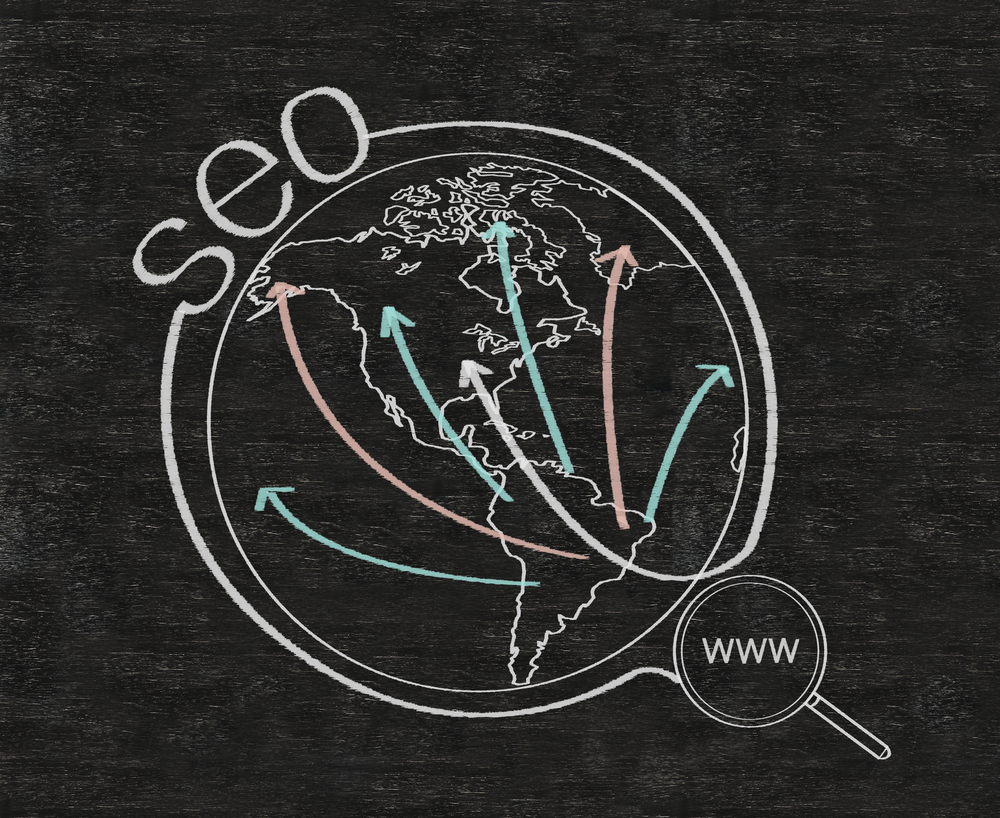When it comes to trustworthy media, the line between traditional channels and online news hubs continues to blur. According to the recently released “2013 Edelman Trust Barometer,” global consumers put as much faith in content discovered via search engines as they do in broadcast television and print newspaper media.
In the 13th annual global report, Edelman surveyed “informed publics” – college-educated citizens in upper income brackets that actively consume various media. Overall, trust in media increased 5 percent year-over-year, and search engines and traditional media topped the list as information portals. Age had no significantly measurable influence on preferences between traditional and search engine resources. For example, 59 percent of consumers aged 18 to 29 trust traditional media, while 61 percent of consumers within the same bracket put their faith in search engines. Sixty-one percent of people between the ages of 30 and 44 prefer traditional channels, and 60 percent of internet users of the same demographic chose search engines. In a slightly older bracket, consumers aged 45 to 64 said both search engines and traditional channels earn their confidence equally.
 Social media fell far behind, with 47 percent of Millennials (aged 18-29), 45 percent of Young Boomers (aged 30-44) and 37 percent Baby Boomers (aged 45-64) putting their trust in social media for the day’s news. Brands often distribute custom content via social media hubs, but perhaps these platforms generate ratings lower than search because of the sheer volume of non-credible sources clogging users’ news feeds (like that friend from high school or colleague with wildly different views). While social content serves its purpose, the data suggest brands benefit from SEO news content marketing.
Social media fell far behind, with 47 percent of Millennials (aged 18-29), 45 percent of Young Boomers (aged 30-44) and 37 percent Baby Boomers (aged 45-64) putting their trust in social media for the day’s news. Brands often distribute custom content via social media hubs, but perhaps these platforms generate ratings lower than search because of the sheer volume of non-credible sources clogging users’ news feeds (like that friend from high school or colleague with wildly different views). While social content serves its purpose, the data suggest brands benefit from SEO news content marketing.
Need more reasons to invest in search-friendly content marketing? In 2012, Brafton reported that 63 percent of Americans use search engines like Google and Bing daily. In fact, U.S. internet users don’t go more than a day or two without turning to the web for information. When it comes to the user experience provided to internet users, Brafton also found that consumers give sites like Google, Bing, Ask.com and Yahoo! nearly 80 percent approval ratings. As the internet becomes a more trustworthy place, and traditional media hubs transition coverage to the ‘net, consumers will continue to put their faith in what they discover in organic search results.




